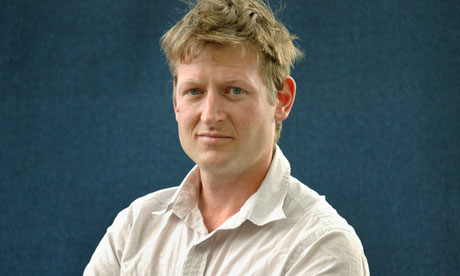British pro-GMO activist, Mark Lynas, appears to have angered African farmers over what looks like a misuse of their images on the internet to promote his agenda. The farmers have demanded that Lynas remove their images and names from all online platforms.

These developments are documented in a new report by Dr Eugenio Tisselli, an IT specialist, and his co-author, biosafety scientist and agroecologist, Dr Angelika Hilbeck of ETH Zurich, Switzerland. Since 2011, Drs Tisselli and Hilbeck have coordinated a project, “Sauti ya wakulima” (“The voice of the farmers”), aimed at supporting Tanzanian farmers create a collaborative network of shared knowledge.
Drs Tisselli and Hilbeck felt compelled to speak out when they discovered that some Tanzanian farmers, whom they know personally, were used in Lynas’s public relations campaign to promote GM crops in Tanzania. Drs Tisselli and Hilbeck emphasised that the farmers know nothing of the GMO “debate” or Lynas’s role in it. They are only concerned that their voices were used without their knowledge or consent in a context they do not understand and do not want to be a part of.
Lynas is a Visiting Fellow at Cornell’s Office of International Programmes at the College of Agriculture and Life Sciences, where he promotes GM crops. Lynas describes his role at Cornell as “advising on Cornell’s vital work on public sector biotechnology in developing countries to support environmental and food security improvements via the Cornell Alliance for Science”. The Alliance promotes GM crops in the developing world.
Lynas used images of the Tanzanian farmers and their crops on his Twitter thread to put forward his views on how “anti-GMO activism and politics” block the advancement of agricultural biotechnology, which, according to him, will prevent local staple crops from being devastated by drought, disease, and pests.
In the posted series of images is one depicting a pair of hands holding three stunted maize cobs, with the following caption: “We really need the President [of Tanzania] to allow farmers to grow improved crops with drought tolerance and pest resistance. This is what it looks like when they grow the old varieties with no resilience.”
Drs Tisselli and Hilbeck write in their report: “This image and caption are grossly misleading, since they imply that this is the general appearance and outcome of the farmer’s traditional open-pollinated maize varieties. They also imply that these crops would lack the resilience of other ‘improved’ ones – presumably Mr Lynas’s favoured GM hybrid varieties.”
The image is followed immediately by another, depicting a group of four children with sad faces and torn, dirty clothes, with Lynas’s caption: “Is that (the three maize cobs from the image above) enough to feed this hungry family [the four children)? All the European-funded NGOs say, ‘Yes, these farmers should stick with farmer-saved seeds and traditional varieties.’ So these children must stay hungry thanks to their ideology.”
A few tweets below, a third image is posted of a woman with Lynas’s caption: “I am sick of having to explain to farmers here (in Tanzania) why they must continue to suffer this global injustice. It is past time for progressives everywhere to speak up. Science is for everyone, not just the world’s rich.”
Drs Tisselli and Hilbeck happened to know the woman in the third image, a farmer whom they call Mrs R. They describe her as “an innovative and progressive farmer” who enjoys a “good quality and quantity of food production” using locally-adapted varieties that are also non-GMO. In reality, they say, her life is “the opposite of what Mr Lynas’s Twitter thread misleads the reader to believe”. Far from the implication of the image posted by Lynas of starving children, Mrs R’s farm has been profitable enough to enable her to put her children through school and all now lead independent lives.
Drs Tisselli and Hilbeck report that Mrs R. did not give permission for the use of her image in this context and that she “is shocked that she was implicated in a context that, by association, could imply that she is needy, starving, and leading a life of deprivation”. They add, “Mrs R. demands that her image is deleted from all social media and internet platforms immediately.”
Drs Tisselli and Hilbeck found that Lynas’s employer, the Cornell Alliance for Science, repeatedly used the image of the stunted maize cobs in publicity materials promoting the Gates-funded WEMA (Water Efficient Maize for Africa) project and a Monsanto GM maize event, (MON 87460). Monsanto claims that MON 87460 is drought-tolerant and insect-resistant but in November 2018 South African regulators rejected it for cultivation on the grounds that there is no evidence that it actually increases yield under water-limited conditions – or that it effectively resists pests.
